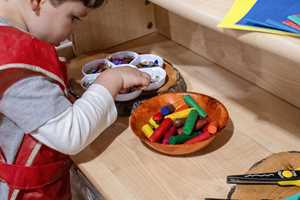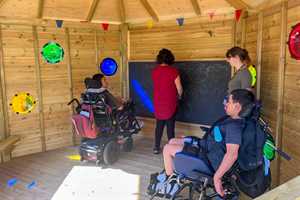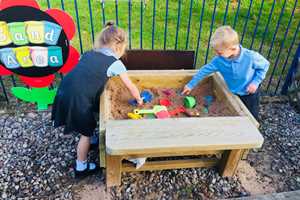
Special Educational Needs
How The Playground Can Aid Children In Learning Important Skills Needed For Self-regulation
Self-regulation in children is all about a person’s ability to tolerate any situation they find themselves in: how they manage their emotions and reactions, their behaviour and their body movements when faced with a situation that they may find difficult.
Not to be confused with self control, which is related to, but not the same as, self-regulation (self control is more of a social skill that we use to keep our emotions, behaviour and impulses in line) - self-regulation is different.
It’s the thing that allows us to manage ourselves in a difficult situation and to do so while still remaining focused and attentive.
Look at it that way, and you see why self-regulation can be so tough for some children!
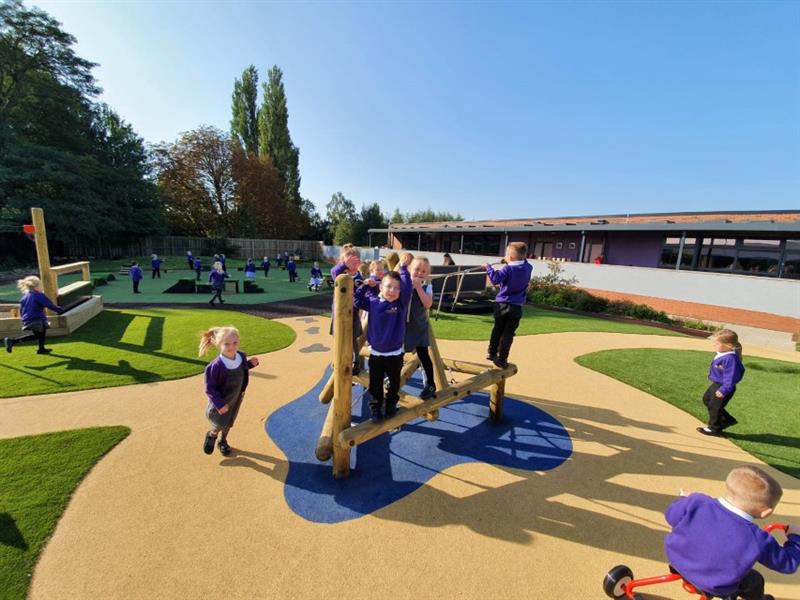
As they get older children need to learn how to recognise that they’re upset, to work out how to calm themselves down when this happens and avoid frustrated outbursts.
They need to learn how to be flexible when situations and expectations change (as they do in everyday life) and to form appropriate responses to sensory input. These skills take time to develop - it’s a big ask!
Of course, it’s a normal part of being a toddler to have tantrums, but if this continues further into childhood, if a child seems to have an inability to control their behaviour beyond what would be expected for a child of their age, it might be because they have a difficulty with self-regulation.

Product Spotlight
So How Exactly Can Outdoor Play Help With Self-Regulation?
Outdoor play by its very nature is an excellent self-regulation activity.
Why?
Self-regulation is a bit like having an internal guage. Just like a central heating system, where a thermostat keeps track of temperature and turns the system on or off to maintain optimum conditions, our bodies have a “set point” where we’re able to manage behaviour and emotions appropriately.
Self-regulation in children is all about finding that set point. Keeping track of changes in our environment or circumstances.
Processing information, recognising and assessing how we’re feeling and reacting and knowing what to do, what changes we might need to make to stay as close as possible to our set point. There are countless opportunities for children to practise this during outdoor play.
Playing outdoors with a group of friends will invariably require self-regulation - as children fall out over games and ideas then learn how to work it out amongst themselves.
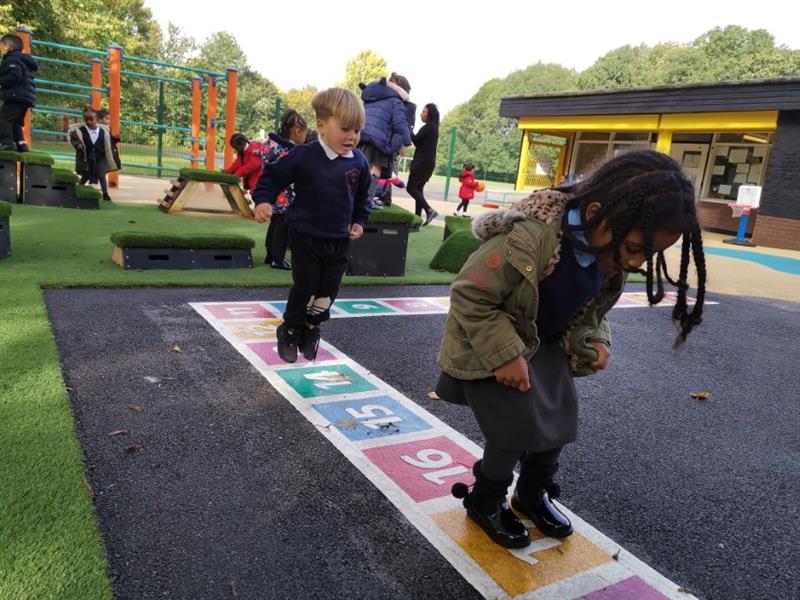
Of course, an adult will often intervene to keep things on track, but eventually these situations allow children to gain the self-regulation skills they need because they’ve had to resolve situations and solve problems using their own coping mechanisms.
Climbing activities on playground equipment are brilliant for children who like to enjoy repetitive motion and climbing movements to help with their self-regulation.
This type of activity is particularly valuable for children who have sensory processing issues and/or ADHD, children on the Autism Spectrum and children with Asperger syndrome.
Self-Regulation, Sensory Processing and Executive Functioning
If a child has sensory processing issues, they struggle to manage information that they receive from any one or more of their 7 senses - sight, touch, hearing, smell, taste, proprioception and the vestibular sense.
The problem lies within the body’s nervous system which can’t regulate itself. So if a child is faced with sensory overload they can’t self-regulate, they know that they’re overwhelmed but they can’t help how they react.
In a similar way, children who have impaired executive functions, which affects their ability to perform tasks such as planning, organising, prioritizing and controlling emotional reactions, paying attention to and remembering details - can also have problems with self-regulation.
This is often the case for children with ADHD and children on the Autism spectrum, who also struggle with flexible thinking and find it difficult to process changing from one situation to another.
This makes it almost impossible for them to be able to stop, reflect and respond appropriately, and can cause great upset for them.
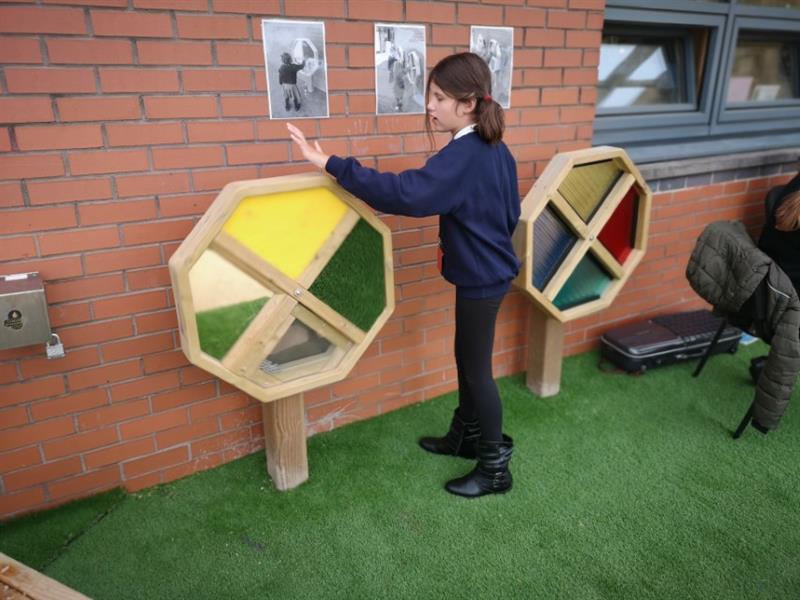
Outdoor Activities To Help Children Self-Regulate
Cghildren's self-regulation skills develop gradually and as with all skills, it’s important to take into account what developmental milestones are appropriate for an individual child.
There are many different ways that adults can help; perhaps talking and preparing in advance for a potential change to a situation, or helping a child to recognise when sensory input is a problem and what coping techniques they could use.
Never underestimate how much playing outdoor games and enjoying outdoor activities can help a child to practise and learn those skills!

Outdoor learning and play naturally allows children to experience different sensory input, moving and climbing, playing games where they have to learn to wait and to turn-take, to follow basic rules and sometimes to tolerate losing as well as experiencing the excitement of winning a game!
Our specialist range of outdoor playground equipment, designed specifically to support children with Special Education Needs, is ideal for practising self-regulation skills.
We have worked in conjunction with teaching professionals and occupational therapists to develop products that meet children’s learning and developmental needs - and products that they always love to use!
Physical play and climbing equipment such as the In-Out Shapes, the Sensory Circuits Alerting Frame and our range of Trim Trails and Playframes to suit different ages and abilities are all great examples of equipment that children can use to get the sensory input they crave and to experience new sensory input in a safe environment, to help them self-regulate.
Sensory spaces are wonderful for calming children and helping them to practise relaxation and self-regulation techniques - ideally set up if you want to designate an area in your school where you can take children to effectively teach self-awareness skills and self-regulation strategies.
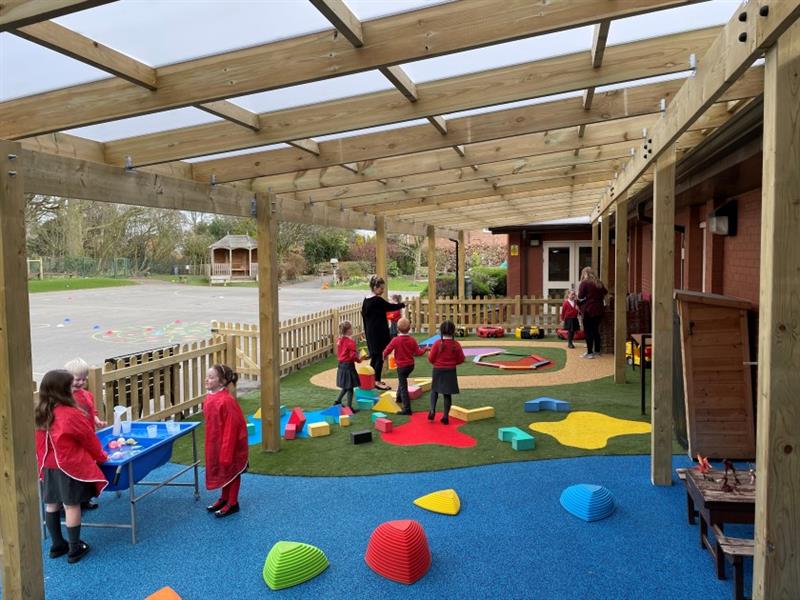
Outdoor Gazebos are fantastic for this, and we are seeing more and more schools creating beautiful outdoor sensory “quiet” zones with their gazebos for exactly this purpose.
They can be used all year round, so children can experience and enjoy all the health and wellbeing benefits of the fresh air as part of their self-regulation, without being interrupted by the weather.
We have also begun to install our brand new inclusive Sensory Tunnel in schools - a totally enchanting place for children to learn through experience and become accustomed to using their different senses, learning to manage their reactions and responses.
If you would like to talk to us about how you can improve your school or nursery playground to help children with their self-regulation, please don’t hesitate to Contact Us. We have been designing and installing amazing outdoor learning spaces for over 20 years, and have unrivalled experience in listening to and delivering individual schools’ needs.



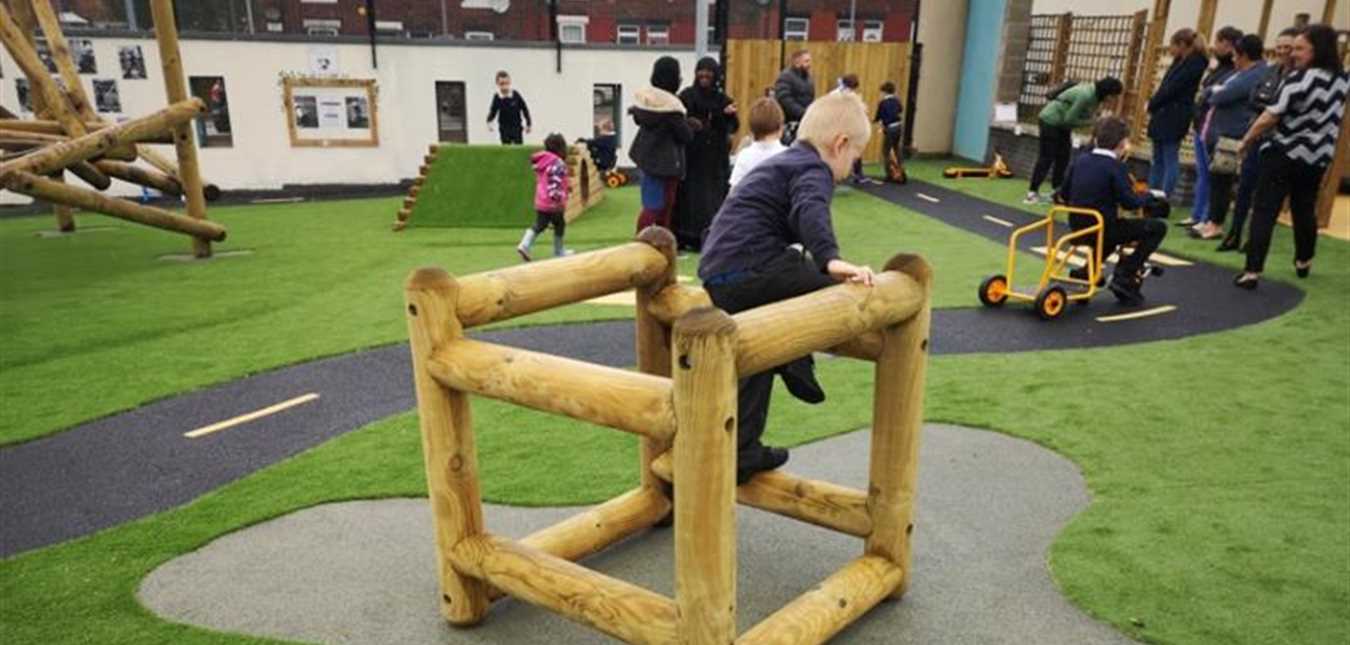
.jpg)

